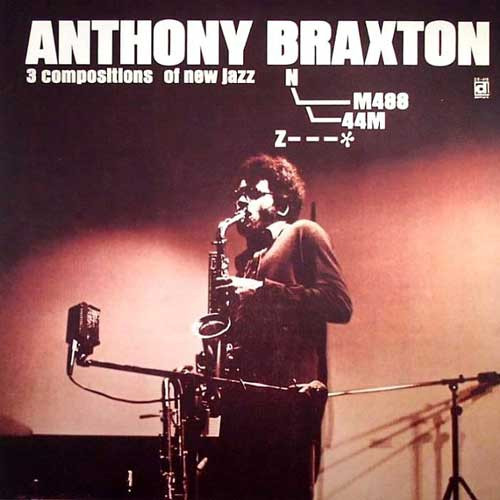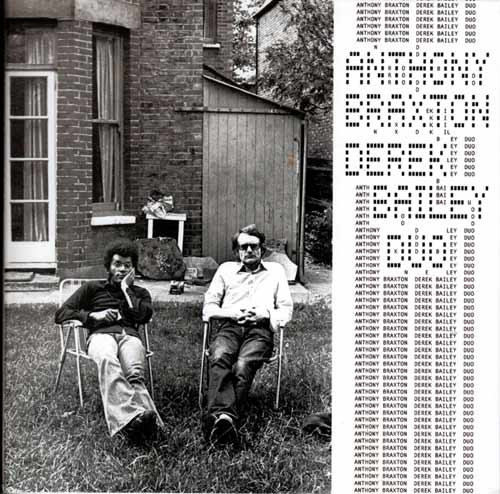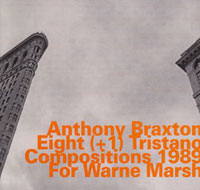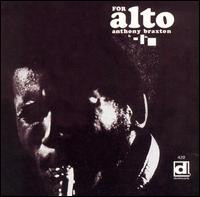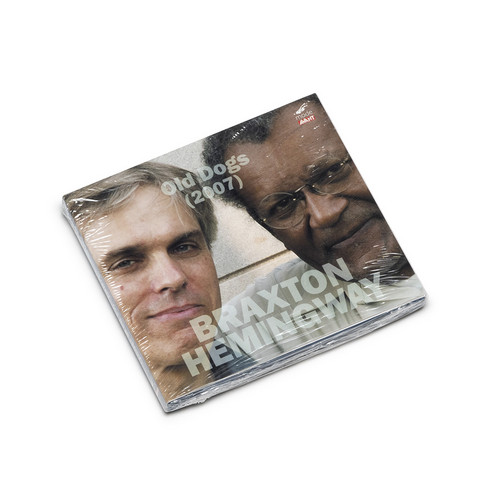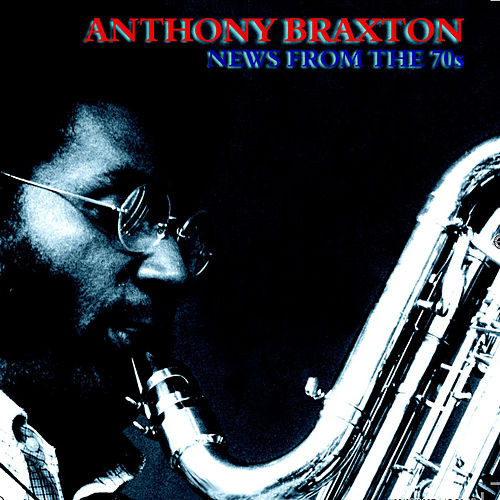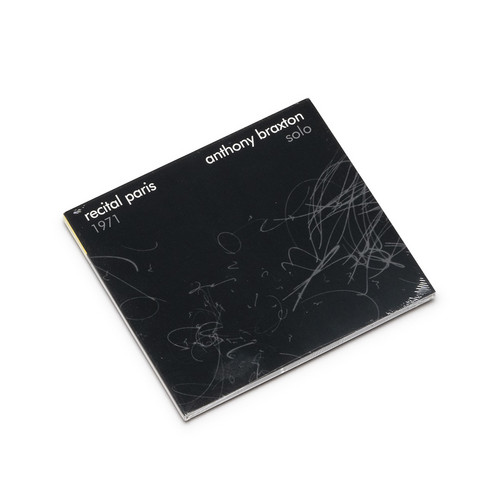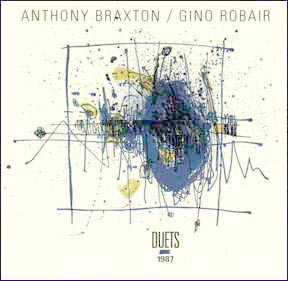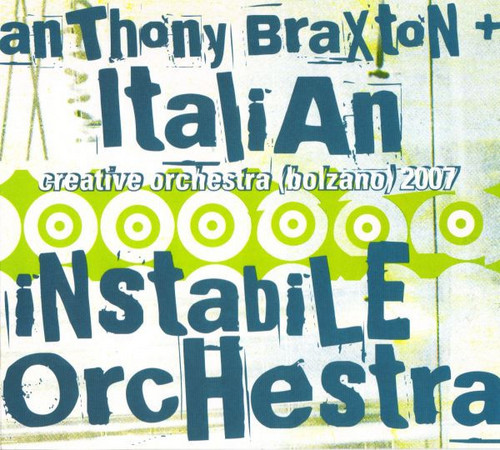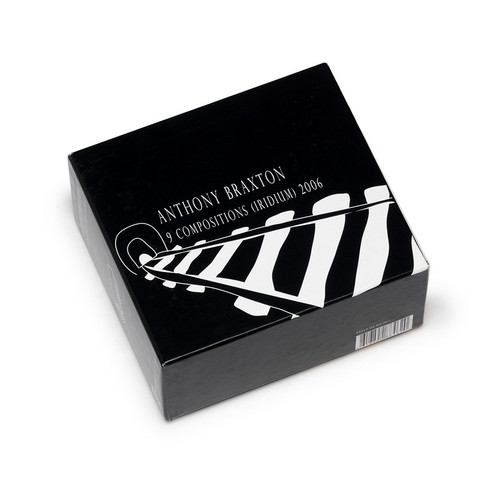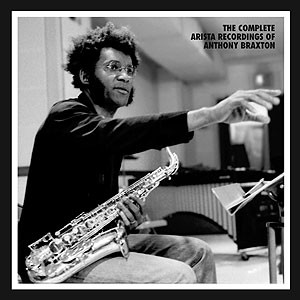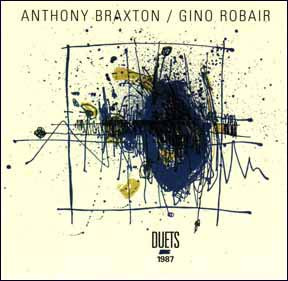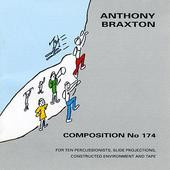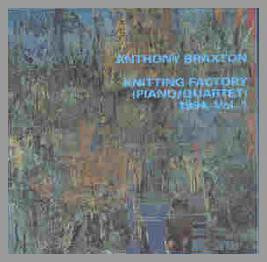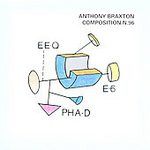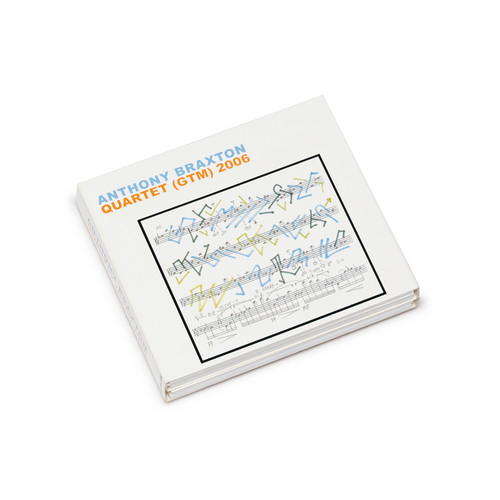Anthony Braxton
Anthony Braxton (born June 4, 1945 in Chicago) is an American composer, saxophonist, clarinettist, flautist, pianist and philosopher. Inspired by John Cage and Karlheinz Stockhausen as much as John Coltrane and Charlie Parker, Anthony Braxton has crafted an immense body of highly complex work. Though Braxton is hardly known to the casual listener he is certainly one of the most prolific American musicians/composers to date, having released well over 100 albums since the 1960s. In 1994 he was awarded a MacArthur Fellowship. Braxton plays a multitude of instruments including the flute; the sopranino, soprano, C-Melody, F alto, E-flat alto, baritone, bass, and contrabass saxophones; and the E-flat, B-flat, and contrabass clarinets.
Anthony Braxton (born June 4, 1945 in Chicago) is an American composer, saxophonist, clarinettist, flautist, pianist and philosopher. Inspired by John Cage and Karlheinz Stockhausen as much as John Coltrane and Charlie Parker, Anthony Braxton has crafted an immense body of highly complex work. Though Braxton is hardly known to the casual listener he is certainly one of the most prolific American musicians/composers to date, having released well over 100 albums since the 1960s. In 1994 he was awarded a MacArthur Fellowship. Braxton plays a multitude of instruments including the flute; the sopranino, soprano, C-Melody, F alto, E-flat alto, baritone, bass, and contrabass saxophones; and the E-flat, B-flat, and contrabass clarinets.
3 Compositions Of New Jazz
Reissue of Anthony Braxton's second album for Delmark Records, originally released in 1969. Featuring Leroy Jenkins (violin and percussion) Leo Smith (trumpet) and Richard Abrams (piano, cello, alto clarinet). "...is there a McDonalds nearby?... remember, jazz musicians have to deal with the problem of no coins. On the road you either eat well and go home broke or you eat junk food and go home sick. Sick, but solvent." -- from Forces in Motion: The Music and Thoughts of Anthony Braxton by Graham…
First Duo Concert (London 1974)
Their earliest meeting on record - the complete London (Wigmore Hall) concert (organised by Emanem), featuring them both at the top of their form. Highly acclaimed by both enthusiasts and critics. Reissue of 4006 which contained the concert section of Emanem 601. "These twelve duets between African-American avant-gardist Anthony Braxton and Brit Derek Bailey are remarkable for several reasons, not the least of which is that this is the first recording of these two seminal figures performing in t…
Eight (+3) Tristano Compositions 1989 - For Warne Marsh
"I would like to make a few notes and hopefully clear up a potential misunderstanding or two. Most importantly, no matter what you think about the original Tristano performances, this music is not "cool" – with feverish intensity, volcanic dynamics, explosive technique, aggressive attitudes ... there is an enormous amount of drama here, and none of it is sedate, reticent, or bloodless. Note the treacherously difficult heads on tunes like "Two Not One," "Dreams," "Lennie's Pennies," and "A…
Seven Compositions (Trio) 1989
"The great avant-garde reed player Anthony Braxton (who on this set switches between alto, C-melody sax, clarinet, flute, soprano and sopranino), bassist Adelhard Roidinger and drummer Tony Oxley play five of Braxton's complex originals, Oxley's "The Angular Apron" and the standard "All the Things You Are." As usual Braxton's improvising is quite advanced and original but is colorful and fiery enough to always hold on to open-eared listener's attention. This is one of literally dozens of …
Creative Orchestra (Köln) 1978
"The Koeln concert shows us these positive vibrations marching through "the complete continuance of creative music," and on towards the next millennium. The "success of the future" is not a lost cause as long as there is music like this in the air."-Graham Lock"Although Anthony Braxton does not play on this double CD (whose contents were released for the first time in 1995), his presence is certainly felt. He conducts the band through a fairly free improvisation and five of his compositio…
The Complete Remastered Recordings on Black Saint
Milestone! A monographic box-set collection aimed at recounting the most beautiful chapters that revolutionised the history of jazz. This new series was launched in March 2010 with the simultaneous release of four box-sets, including albums by some of the artists who participated in the success of the outstanding labels. A philological work, beginning with the original recordings on multi-track master tapes, patiently integrally remastered paying strict attention to the sound quality. In…
For Alto
One of the first solo saxophone recordings of the 60s – recorded as one of the first few sessions by a young Anthony Braxton! As the title implies, the whole album features alto sax – played freely by Braxton with a depth of creativity and sense of humanity to rival any of the previous greatness of his generation from bigger names on labels like Impulse or ESP. There's a great sense of restraint here too – not one that has Braxton on the inside of the jazz spectrum, but which keeps him …
Old Dogs (2007)
Jerry Hemingway joined and remained a member of the infamous Anthony Braxton quartet for eleven years from 1983 - 1994. This set documents their first recorded collaboration in 12 years. Using an hourglass as a guide, each CD contains one 60-minute improvisation, and each improvisation is very different in character and instrumentation. These studio recordings were made at Wesleyan University in August 2007. Released to celebrate Braxton's 65th birthday, the recordings are packaged in ca…
News from the \'70s
This rare collection of recordings from the 1970s features Anthony Braxton at the height of his power and makes an indispensable contribution to his discography. Personally selected by esteemed Italian musicologist Francesco Martinelli from long forgotten cassettes stored in the saxophonist's home, these six tracks were not released commercially until 1999. While the sound quality is mixed, the music is some of Braxton's best. There are two solo performances ("Composition 8G" and "Composition 8C…
23 Standards Quartet
This 4-CD set (4.5 hours of music) was recorded during a series of concerts in 2003 by Antony Braxton's quartet featuring Kevin O'Neil on guitar, Kevin Norton on percussion, Andy Eulau on bass and Anthony Braxton on saxophone. Here they perform standards. Personnel: Anthony Braxton (saxophone); Kevin O'Neil (guitar); Andy Eulau (bass instrument); Kevin Norton (percussion). Recording information: 2003.
Récital Paris 1971
Beautiful solo work from Anthony Braxton -- recorded live in Paris at the start of the 70s, and a fair bit more sensitive than some of his earlier work on that scene! Side one features a beautiful take on Duke Ellington's "Come Sunday" -- one that runs for 25 minutes, and which features Braxton blowing straight, and almost with some of those Lee Konitz-inspired modes he was using around the time. The tune's still got some of the darkness you might expect from Braxton -- but things really go out …
Duets
The rare original LP released as a hand printed/numbered edition of 1000, designed by Amy Webb."Braxton concentrated heavily on duo performance during this period, and this was one of the happiest of his associations. ...warmly recommended. *** "...these duets are not only stimulating and somewhat challenging, but also surprisingly lyrical and even elegant. The two musicians extract maximum variety from the duo format." --Option Magazine
Creative Orchestra
Recorded live at Alto Adige Jazz Festival in Bolzano, Italy in June of 2007. All compositions by Anthony Braxton: Composition No. 63, Composition No. 92 (part 1-2), Composition No. 164 (part 1-2), Composition No. 59
9 Compositions (Iridium) 2006 (12+1tet)
Anthony Braxton's 9 Compositions (Iridium) 2006 is a nine-CD-plus-one-DVD box set documenting what Time Out New York called "last Spring's epochal run" at New York's Iridium Jazz Club with his 12+1tet. Described by Braxton as "THE point of definition in my work thus far," these concerts featured the world premieres of Compositions 350 through 358, the final works in his Ghost Trance Music series, recorded over the course of this rare four-night stand on an American stage. Included with the music…
The Complete Arista Recordings of Anthony Braxton
Here it is, the Mosaic’s awesome Anthony Braxton set, The Complete Arista Recordings, is a long-awaited dream-come-true for fans of the jazz avant-garde. The set’s liner notes were written by musician and scholar Mike Heffley, who gave Mosaic a draft that was twice as long as what they were able to use. Anthony Braxton is the sort of artist who triggers those heated “Is it jazz?” debates; whatever his music is, it is brilliant. By the time he signed with Arista Records in 1974 at the age of 29, …
Duets 1987
Braxton concentrated heavily on duo performance during this period, and this was one of the happiest of his associations. ...warmly recommended.
Composition No. 174
2024 Stock. Minor signs of wear from long-time storage. A new side of ever surprising master composer/musician Anthony Braxton. A world premier performance by the Arizona State University Percussion Ensemble directed by Dr. J. B. Smith. Recorded Feb 6, 1994 in the Music Theatre at the Arizona State University School of Music, Temple, Arizona. The CD is accompanied by an 8-page booklet to lead you throught the labyrinth of Braxton's thinking.
Knitting Factory (Piano/Quartet) 1994, Vol.1
Anthony Braxton plays piano. Two discs, 10 jazz standards, over 75 minutes each disc. (Incidentally this is the first piece by Lennie Tristano on Disc 1). Marty Ehrlich on reeds, Joe Fonda on bass, Pheeroan AkLaff on drums.
Composition N.96
Recorded in 1981 by a 37-piece orchestra & dedicated to the master composer Karlheinz Stockhausen, this album is a key work in Braxton's music's evolution both on the structural & spiritual levels; features extensive notes by Graham Lock.
Quartet (GTM) 2006
Quartet (GTM) 2006 is Anthony Braxton's first release for Important Records. GTM stands for Ghost Trance Music and this four CD box set contains four Ghost Trance compositions recorded in quartet with Anthony Braxton playing reeds, Carl Testa on bass, Aaron Siegal on percussion and Max Heath on piano. This 4CD box also contains a definitive essay by Braxton on his Ghost Trance compositions.
